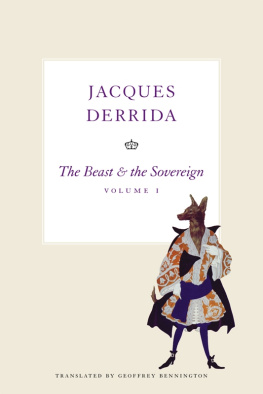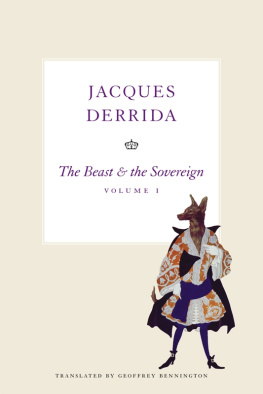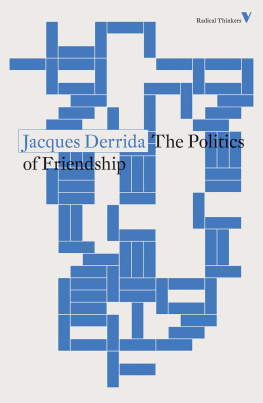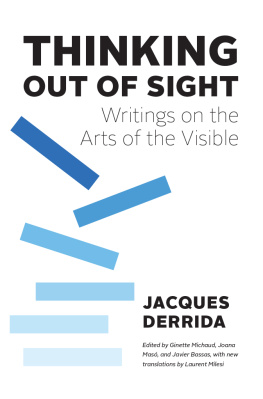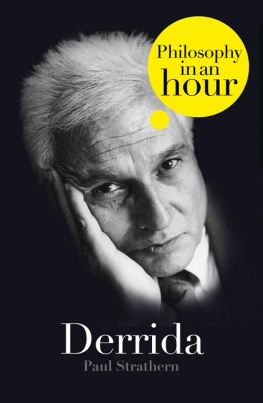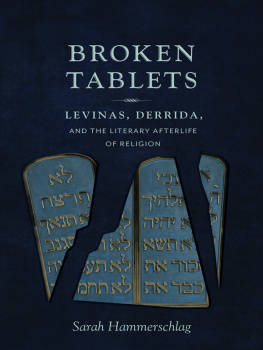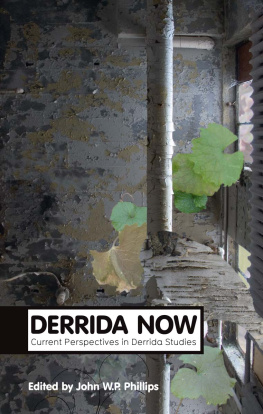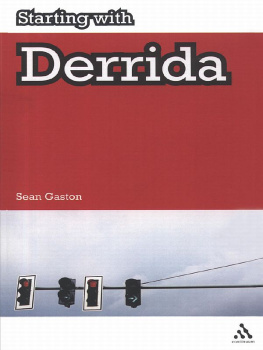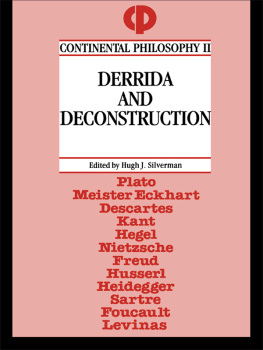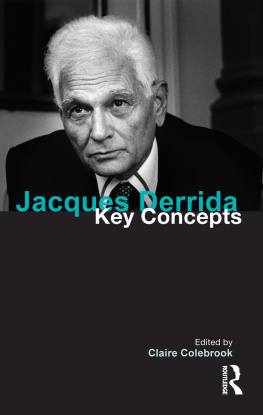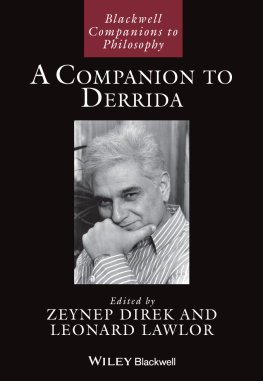Specters of Marx
One of Derridas best books More explicitly than before, he has taken politics and history as his themes.
New Statesman
Always a man of the left, [Derrida] felt able to write this book only when Soviet communism had collapsed, as his espousal of Marx was then, he said, less likely to be misunderstood.
The Guardian
Derrida presents a provocative and insightful interpretation of Marx. Derrida shows convincingly that Marx is haunted by history and that he wants to put it to an end.
RRPE
Derrida is considered a classic of the postmodern canon.
New York Review of Books
its importance within the Derridean canon cannot be overemphasized the text that scholars turn to to understand the politics of deconstruction.
Southern Humanities Review

Routledge classics contains the very best of Routledge publishing over the past century or so, books that have, by popular consent, become established as classics in their field. Drawing on a fantastic heritage of innovative their field. Drawing on a fantastic heritage of innovative writing published by Routledge and its associated imprints, this series makes available in attractive, affordable form some of the most important works of modern times.
For a complete list of titles visit
www.routledge.com/classics
Jacques
Derrida
Specters of Marx
The State of the Debt, the Work of Mourning and the New International
Translated from the French by Peggy Kamuf
With an introduction by Bernd Magnus and Stephen Cullenberg

Originally published in French as Spectres de Marx,
Editions Galile, 1993
First published in English in 1994
by Routledge
First published in Routledge Classics 2006
by Routledge
711 Third Avenue, New York, NY 10017
Simultaneously published in the UK
by Routledge
2 Park Square, Milton Park, Abingdon, Oxon OX14 4RN
Routledge is an imprint of the Taylor & Francis Group, an informa business
English Translation 1994 Routledge
1994 Routledge
All rights reserved. No part of this book may be reprinted or reproduced or utilized in any form or by any electronic, mechanical, or other means, now known or hereafter invented, including photocopying and recording, or in any information storage or retrieval system, without permission in writing from the publishers.
Library of Congress Cataloging in Publication Data
A catalog record for this book has been requested
British Library Cataloguing in Publication Data
A catalogue record for this book is available from the British Library
ISBN10: 0415389577
ISBN13: 9780415389570
CONTENTS
In the wake of the orgy of self-congratulations which followed the 1989 crumbling of the Berlin Wall, the subsequent dissolution of the Soviet Union, and a series of confrontations perhaps forever to be captured best in Tiananmen Square in the image of a single individual blocking the path of an onrushing military tank, a wave of optimism engulfed the Western democratic States. This contagious optimism was best exemplified by the confidence and popularity of Francis Fukuyamas claim that the end of history was at hand, that the futureif that word could still be said to have the same meaningwas to become the global triumph of free market economies.
At the same time many of us felt a vague sense of foreboding, a haunted sense that international changes of such magnitude were as likely to result, at least initially, and perhaps for a long time to come, in transformations as malign as they are benign. Some of us grew tired more quickly than others of the many hasty postmortems of Marxism, as if the virtually global collapse of communism and Marxism referred to the very same thing, especially in different times and places as well as to different thinkers.
And yet, it seemed to many that the collapse of communism in Eastern Europe and the Soviet Union, as well as democratic insurgencies in China, had created a new world order. Politicians from George Bush to Vclav Havel had proclaimed that the ideological and political alliances which structured the global community prior to 1989 must now be rethought and restructured. Less dramatically, but just as significantly, the economic integration of Europe beginning in 1992, and the continued economic growth of Japan and the emergence of South Korea, Taiwan, and Singapore as economic forces have all profoundly changed the international economic, social, and political landscapes. The meaning and consequences of these changes are of vital importance to us all; no discipline or sector of culture has a monopoly on potential analyses, much less a monopoly on answers.
In response to the changing social, political, philosophical, and economic dimensions of the global community, scholars and intellectuals throughout the world are rethinking the meaning of past verities and developing new theoretical approaches. Among the central contested issues: What remains of the socialist vision(s) after the collapse in 1989? Has the collapse of communism also spelled the death of Marxism, and of Marx as an important philosopher and political thinker? Have we indeed reached the end of history as Fukuyama has argued, where pluralistic democracies and capitalist economies reign supreme? Is the future now to be simply a choice between Scandinavian-style social democracy on the one hand, and unrestrained free market capitalism on the other? Given the difficulties some democratic, free market economies are experiencingincluding the plight of the homeless, the lack of adequate health care, environmental degradation, and enormous national debt burdenswhat sort of model for the future do we have? And what is one to make of the destructive, even violent nationalisms which have followed in the wake of the collapse of communism, not to mention virulent forms of ethnocentrism and xenophobia perhaps not seen since Hitlers Germany? What does this imply, then, about the future structure and functioning of the global economy and life throughout our shared world? What new international tensions will emerge and what will be the nature of theoretical and political discourse as we approach the twenty-first century? Who must ask such questions and to whom must they be addressed?
In particular, how will intellectuals in the Marxist tradition respond, theoretically and politically, to the global transformations now occurring? How has the crisis in Eastern Europe and the former Soviet Union affected the way intellectuals, scholars, and government officials in those countries and around the world reconceive their intellectual and political projects? What is to be the status of Marxist social goals that informed so many Marxist thinkers and social revolutionaries throughout the worldthe egalitarian distribution of income, increased workplace democracy, the end of economic exploitation and the eradication of class differencesgiven the current rush to various forms of capitalism in Eastern Europe, Russia, and China? Does the end of history also portend the end of Marxist theory? What is living and what is dead in Marxism?
In October 1991, in an environment charged by such questions, several of us began a conversation at the University of California, at Riversides Center for Ideas and Society, about what it might be like to have a conference which would not consist of yet another autopsy administered mostly by Anglophone economists and policy analysts who typically were and are very far from the sites of struggle and transformation. We wondered how our colleagues on location, so to speak, understand their circumstances, both historically and philosophically.
Next page

